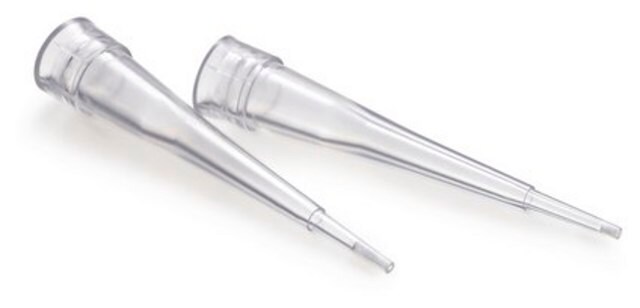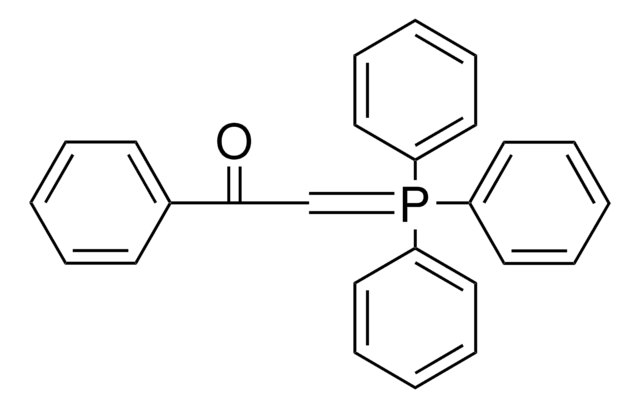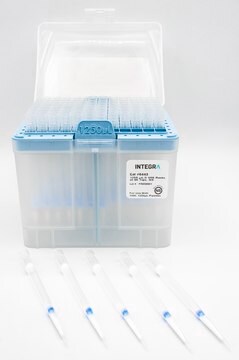ZTC18M
ZipTip® Pipette Tips
C18 resin, micro, bed volume 0.2 μL, tip volume 10 μL
Sinónimos:
ZipTip Pipette Tips
About This Item
Productos recomendados
Materiales
polypropylene
Nivel de calidad
esterilidad
non-sterile
fabricante / nombre comercial
ZipTip®
Parámetros
4-70 °C temperature
técnicas
analytical sample preparation: suitable
fractionation: suitable
protein purification: suitable (concentration)
lecho volumen
0.2 μL
grosor
15 μm
Punta: D.I.
3.375 mm
punta L
31 mm
punta D.E.
5.8 mm
punta volumen
10 μL
tamaño de poro
200 Å pore size
pH
1.5-13.5
2-12(for 24 hour exposure)
capacidad
2.0 μg binding capacity(typically; when used with saturating amounts of analyte)
Condiciones de envío
ambient
Aplicación
Características y beneficios
- One-step desalting, concentration, and purification
- Allows fractionation of complex samples
- Ideal for peptides, proteins, nucleic acids, and more
- Maximum recovery without dead volume
- Eliminates time-consuming chromatography
Otras notas
Información legal
Certificados de análisis (COA)
Busque Certificados de análisis (COA) introduciendo el número de lote del producto. Los números de lote se encuentran en la etiqueta del producto después de las palabras «Lot» o «Batch»
¿Ya tiene este producto?
Encuentre la documentación para los productos que ha comprado recientemente en la Biblioteca de documentos.
Los clientes también vieron
Protocolos
Biomarkers play an essential role in the drug discovery and development process.
Nuestro equipo de científicos tiene experiencia en todas las áreas de investigación: Ciencias de la vida, Ciencia de los materiales, Síntesis química, Cromatografía, Analítica y muchas otras.
Póngase en contacto con el Servicio técnico







